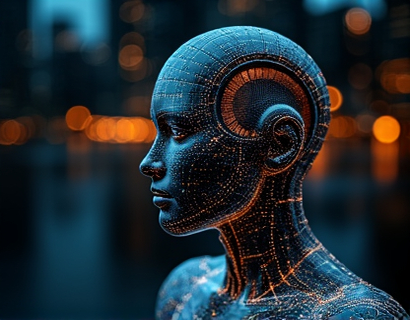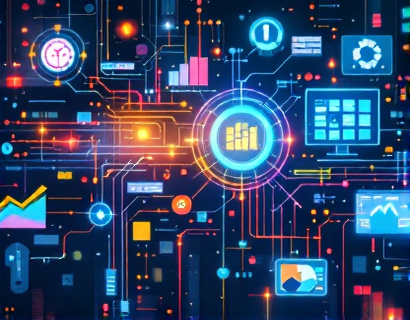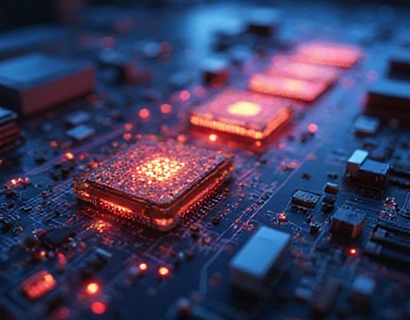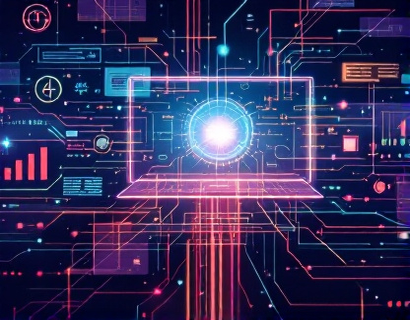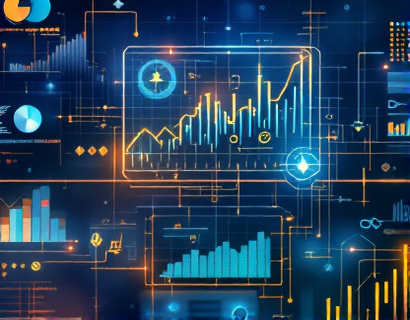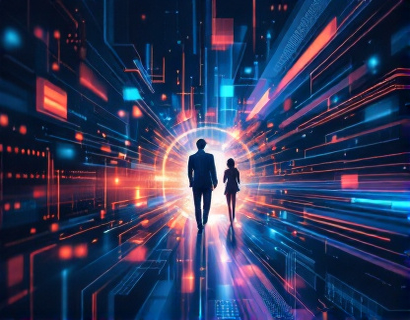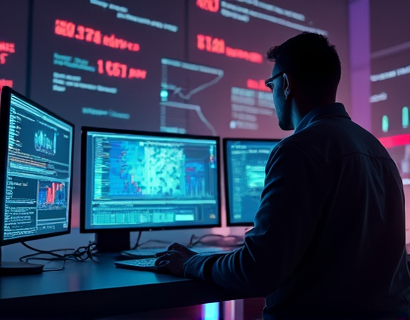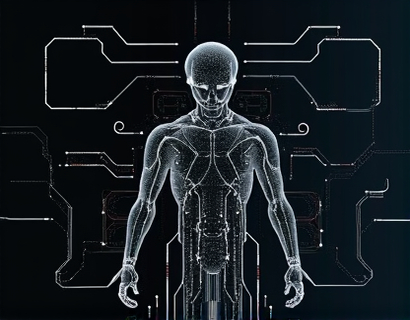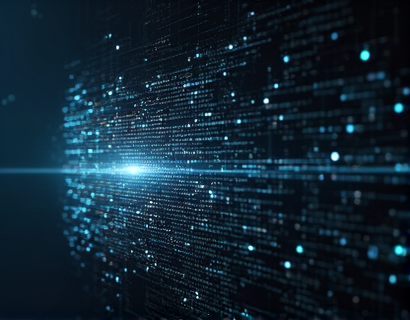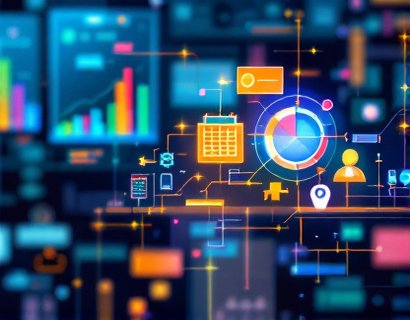Revolutionizing Digital Experiences: The Convergence of AI and Crypto
The integration of Artificial Intelligence (AI) and cryptocurrency is ushering in a new era of digital transformation, offering unprecedented opportunities for innovation and growth. This convergence is not just a technological trend but a fundamental shift in how we perceive and interact with digital systems. By harnessing the power of AI-driven insights and blockchain technology, developers and entrepreneurs can create smart solutions that redefine user experiences and drive unparalleled engagement in the tech frontier.
The synergy between AI and cryptocurrency is multifaceted, each enhancing the capabilities of the other. AI provides the analytical prowess to process vast amounts of data, identify patterns, and make predictions with high accuracy. Cryptocurrency, on the other hand, offers a decentralized and secure medium for transactions, enabling trustless and transparent interactions. When combined, these technologies can unlock new dimensions of digital innovation, from enhanced security and efficiency to novel business models and user-centric applications.
Enhanced Insights Through AI and Blockchain
One of the most significant benefits of merging AI with cryptocurrency is the generation of enhanced insights. AI algorithms can analyze blockchain data to uncover trends, predict market movements, and optimize trading strategies. This data-driven approach allows for more informed decision-making, reducing risks and increasing returns. For instance, AI can process transaction histories, network activity, and user behavior to provide deep insights into market dynamics, helping investors and developers make strategic choices.
Moreover, the transparency and immutability of blockchain data make it an ideal source for AI training and validation. By feeding AI models with blockchain data, developers can ensure that the insights generated are reliable and unbiased. This synergy not only improves the accuracy of predictions but also builds trust among users, who can verify the integrity of the data and the algorithms used to process it.
Secure Solutions for Digital Transactions
Security is a paramount concern in the digital world, and the combination of AI and cryptocurrency offers robust solutions to enhance security protocols. Blockchain's inherent security features, such as cryptographic hashing and decentralized consensus mechanisms, provide a strong foundation. AI can further bolster these defenses by detecting and mitigating threats in real-time.
Machine learning algorithms can monitor blockchain networks for anomalous activities, identifying potential security breaches before they occur. AI-driven systems can analyze patterns of malicious behavior and adapt to new threats, ensuring that the network remains secure. This proactive approach to security is crucial in a landscape where cyber threats are becoming increasingly sophisticated.
Additionally, AI can enhance the user experience by simplifying complex security processes. For example, AI-powered authentication systems can use biometric data and behavioral analysis to verify user identities, reducing the reliance on traditional passwords and enhancing overall security. This not only protects user data but also streamlines the transaction process, making it more user-friendly.
Smart Contracts and Automated Processes
Smart contracts, self-executing contracts with the terms directly written into code, are a cornerstone of blockchain technology. When combined with AI, smart contracts can become even more powerful, automating complex processes with precision and efficiency. AI can optimize the logic within smart contracts, ensuring that they adapt to changing conditions and execute seamlessly.
For instance, in supply chain management, AI can predict demand and optimize inventory levels, while smart contracts can automatically trigger payments and updates based on predefined conditions. This integration reduces manual intervention, minimizes errors, and accelerates transaction times. The result is a more efficient and reliable system that benefits all parties involved.
In the realm of decentralized finance (DeFi), AI-enhanced smart contracts can create dynamic lending and borrowing platforms that adjust interest rates and terms based on real-time market data. This not only improves the user experience but also makes financial services more accessible and equitable.
Personalized User Experiences
The convergence of AI and cryptocurrency enables the creation of highly personalized digital experiences. AI can analyze user data, preferences, and behavior to tailor content and services to individual needs. In the context of cryptocurrency, this means offering customized investment portfolios, personalized wallet interfaces, and targeted educational resources.
For example, a digital asset management platform can use AI to analyze a user's investment history and risk tolerance, then recommend a diversified portfolio of cryptocurrencies and other assets. The platform can also provide real-time alerts and insights, helping users make informed decisions and stay ahead in the market.
Moreover, AI-driven chatbots and virtual assistants can offer 24/7 support, answering queries and guiding users through complex processes. These AI-powered tools can understand natural language, providing a seamless and intuitive user experience. The use of cryptocurrency in these interactions ensures that transactions are secure, fast, and cost-effective.
Decentralized Applications and AI Integration
Decentralized applications (dApps) are at the forefront of the blockchain revolution, offering decentralized alternatives to traditional web applications. When AI is integrated into dApps, the potential for innovation becomes even more profound. AI can enhance the functionality and user experience of dApps in several ways.
For instance, AI can power predictive analytics within dApps, providing users with foresight into market trends and user behavior. In gaming dApps, AI can create more realistic and adaptive non-playable characters (NPCs), enhancing the gaming experience. In social media dApps, AI can curate content based on user preferences, ensuring a more engaging and relevant feed.
Furthermore, AI can facilitate the development of more sophisticated decentralized autonomous organizations (DAOs). By integrating AI-driven decision-making processes, DAOs can optimize resource allocation, strategic planning, and community governance. This not only improves efficiency but also fosters greater transparency and accountability.
Challenges and Considerations
While the integration of AI and cryptocurrency offers numerous benefits, it also presents challenges that must be addressed. One of the primary concerns is the regulatory landscape. As both AI and cryptocurrency operate in relatively uncharted territories, regulatory frameworks are still evolving. Developers and businesses must stay informed about legal requirements and ensure compliance to avoid potential pitfalls.
Another challenge is the technical complexity involved in merging these technologies. Developing AI algorithms that can effectively process and analyze blockchain data requires specialized knowledge and expertise. Additionally, ensuring the interoperability of AI systems with different blockchain platforms can be technically demanding. Collaboration between AI and blockchain experts is essential to overcome these hurdles.
Privacy is another critical consideration. While blockchain's transparency is a strength, it can also expose sensitive information. AI can help mitigate this by implementing advanced encryption and anonymization techniques, ensuring that user data remains protected. Balancing transparency with privacy is crucial for building trust and adoption.
Future Prospects
The future of AI and cryptocurrency integration holds immense potential. As technology continues to advance, we can expect more sophisticated applications and broader adoption across various industries. The convergence of these technologies is likely to drive innovation in areas such as healthcare, finance, supply chain, and entertainment.
In healthcare, AI-driven analytics on blockchain-based medical records can lead to more accurate diagnoses and personalized treatment plans. In finance, AI-enhanced trading platforms on blockchain can offer faster, more secure, and more efficient trading experiences. The entertainment industry can benefit from AI-generated content and decentralized distribution models powered by cryptocurrency.
Moreover, the rise of Web3, a decentralized internet powered by blockchain, AI, and other emerging technologies, promises a new paradigm of digital interaction. Web3 aims to give users greater control over their data and online experiences, with AI playing a pivotal role in personalization and automation.
In conclusion, the synergy between AI and cryptocurrency is revolutionizing digital experiences, offering enhanced insights, secure solutions, and personalized services. By embracing this convergence, tech innovators and crypto enthusiasts can unlock new opportunities for growth and engagement, staying ahead in the rapidly evolving digital landscape.





